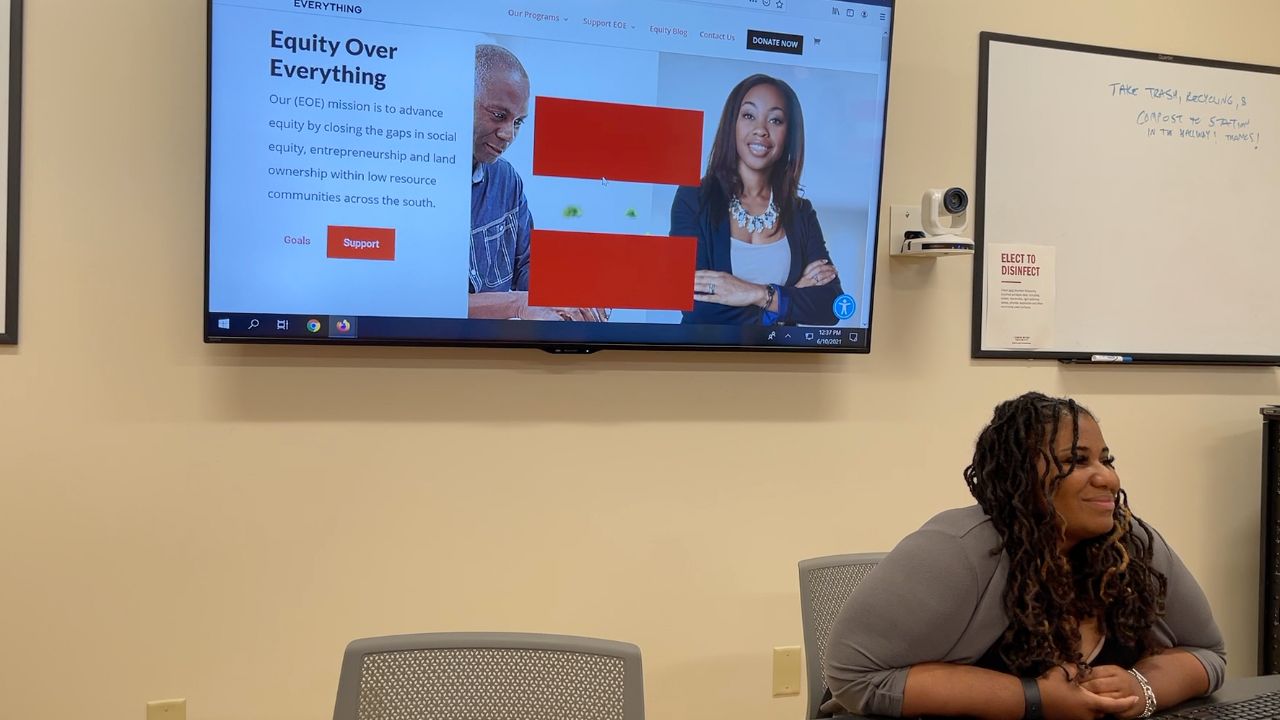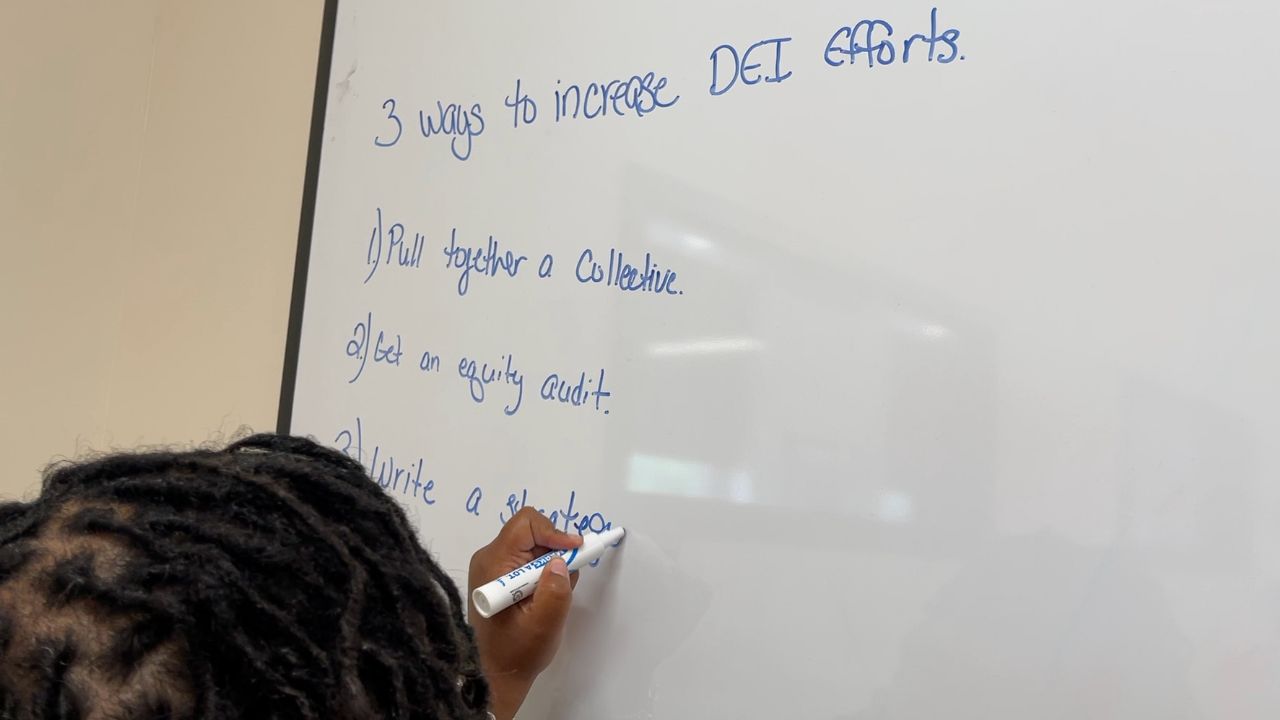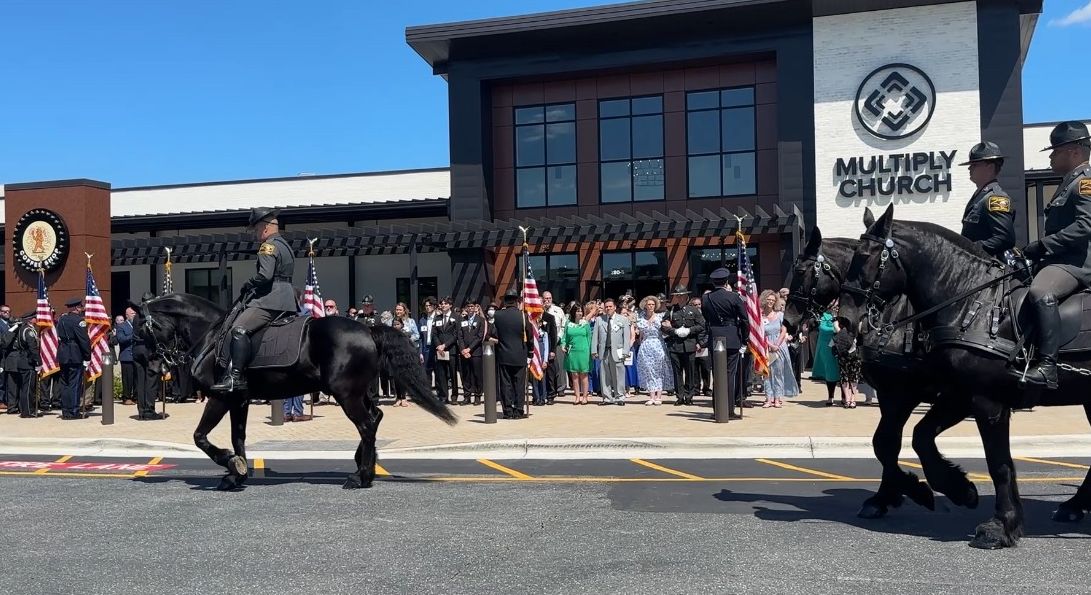ASHEVILLE, N.C. – This past Juneteenth was the first time Buncombe County and the City of Asheville observed it as a paid holiday.
The holiday commemorates when the last enslaved African Americans received news they were free.
Before 2021, many counties and cities in North Carolina didn’t formally recognize the day as a paid holiday.
It’s a conversation Aisha Adams, the founder of the Lenoir-Rhyne University’s Equity and Diversity Institute, has been actively working to have with companies, organizations and agencies.
The institute supports, inspires and equips executives, nonprofit leaders, educators, students, social activists and other community members who intend to spark change and cultivate better communities through their professional careers.

Adams calls Juneteenth a celebration of her freedom, and she should be able to take the holiday off from work to celebrate.
“When I go in to do equity audits with organizations, businesses, one of the tips that I give HR consultants is look at reimagining off time as flexible holidays, because we all have different cultures, different identities and things that excite us,” Adams said.
Adams said employers should be restructuring their holidays when they're working on new diversity, equity and inclusivity policies. This would give employees with different backgrounds the opportunity to celebrate the holidays important to their culture.

“I think it’s just about celebrating culture and understanding that we're all here together and we all make up the rich tapestry of America,” Adams said.
Adams has been an advocate for equity and diversity for years. It started out with her just trying to advocate for herself.
“As a Black woman in America, it's difficult to survive,” Adams said. “We face the pay gap, we faced a wage gap, we face gender issues.”
She has a strong background of self-determination and fighting for equality. Her grandmother marched alongside Dr. Martin Luther King Jr. in Alabama, her home state.
When she served as a panelist for a Juneteenth celebration, Adams discovered just how many people in the audience weren’t very familiar with their employer’s policies and procedures, to ensure they were equitable – or they weren’t familiar with the policies of a nonprofit they supported and donated to. It was then she decided she was going to try and make change at the institutional level.
Now, Adams educates companies, agencies and organizations on how to reshape policy practices and procedural change to become more diverse, equitable and inclusive.
“It really focused my work more to be more of an educator, to help people really begin to see how policy change can really allow people to celebrate who they are,” Adams said.
To learn more about Aisha Adams and her work, click here.










